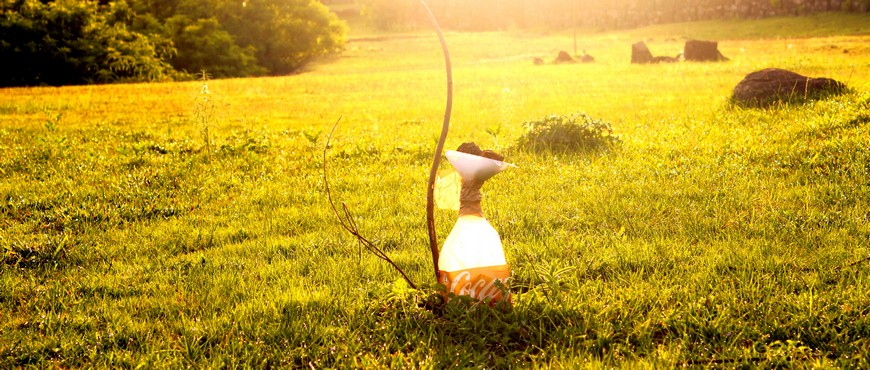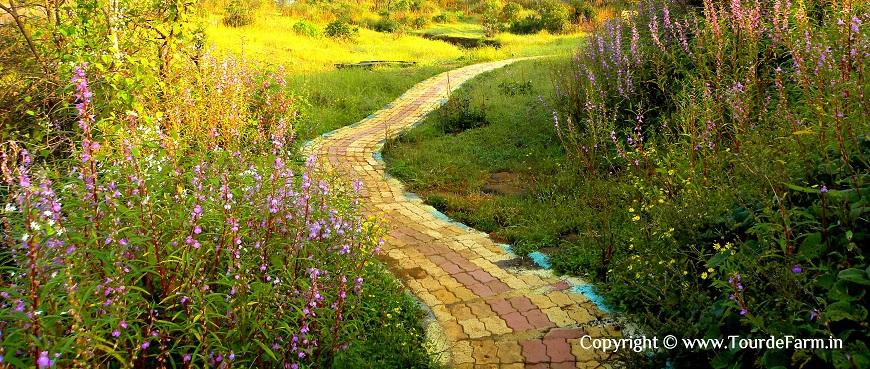Krushi-Kutumba: The Best Way to Explore Real Rural India
- February 20, 2020
- Blog
A farm is a place where you can find serenity and harmony. ‘Krushi’ in Kannada means Agriculture and ‘Kutumba’ means Family. Farming…
Read More
Pick any newspaper, visit any news website at least one breaking news, analysis or debate on environment and nature from global warming, pollution, wildlife, climate change, carbon business to climate politics you will find one. It seems that we have put life on earth at risk & we are on the brink of a natural disaster. If we cannot do something to stop this environmental degradation, we will undoubtedly shift our planet into a “new state” less hospitable to human life.
And the question arises who & how? How do we motivate people- especially our next generation to care and take action? Do this news making doomsday predictions & painting a disastrous portrait of the planet are enough to inspire people to take actions. This idea of destruction seems too difficult to control, makes it distinct problem pushing aside by immediate concerns like homework, studies, etc.
Instead, developing a compassionate concern for the nature in children is required which comes from early contact with nature and a sense of oneness with nature. The emotional connection with nature increases sense of personal responsibility toward environment translates into pro-environmental behavior down the road.
Even studies at Cornell University found that children who spend time in nature- camping, hiking, fishing or hunting they grow up into adults who are more concerned about environment. This study suggests exposing our kids to nature is important if we want them to become our future environmentalists
Nature experience helps children to develop a sense of respect and caring for the natural environment during their first few years of life, and these experiences enhance learning and quality of life over the span of a lifetime.
Childern often learn best through experiences which relate to what is already familiar and comfortable. So start with the place similar to what they already know such as trees in the backyard, or playground or visit to a nearby park.
For direct and concrete experiences children need to be immersed in the outdoor environment to learn about it. Provide simple experiences with the environment close to home, school. Transform your backyard or playground into environment yard by adding bird feeders, wind stocks, flowers and vegetable garden, etc.

Kids naturally relate themselves with animals from a young age. We can develop kid’s empathy for animals by bringing a pet into home, introducing them to wildlife in the area, visiting a nearby farm, etc
My personal experience with my niece was my expressions of interest in, and enjoyment of the natural world was critical for her interest in the environment. Feelings were more important that facts when I introduced her to the world of nature. We must model caring and respect for the environment. Teaching children about taking care of the environment is far less impacting than demonstrating them.
To develop compassionate concern and emotional attachment with the environment kids need frequent outdoor experiences such as nature trip, experiencing wildlife, etc
Visiting a farm is a great opportunity for such experiences though learning about vegetables, farming, feeding farm animals and many more. Children can also learn to care for the environment from farmers. Kids can enjoy & explore the nature such as walking barefoot through a stream and catching and releasing fishes into the stream under the guidance and with the companionship of caring farmers, augmenting our kid’s connection to nature
Let’s take a step forward to save our planet and let our kids growing up to be environmentalists, and make this planet a better place for our future generations to come